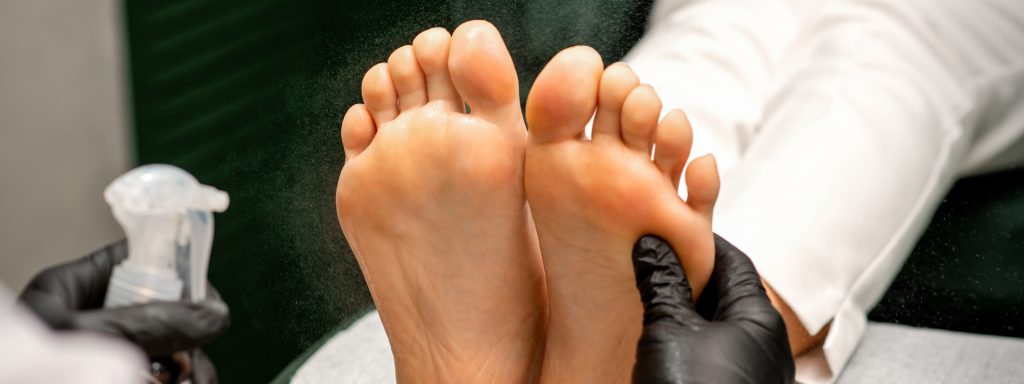Do Pre-Existing Conditions Impact Personal Injury Claims in Texas?
When pursuing a personal injury claim, one of the most important factors to consider is whether you have any pre-existing medical conditions. While a pre-existing condition doesn’t automatically disqualify you from seeking compensation, it can complicate the process. Understanding how pre-existing conditions impact personal injury claims can help you better navigate your case and ensure that you receive the compensation you deserve.
What is a Pre-Existing Condition?
A pre-existing condition refers to any health issue or injury that you had before the accident that is now the subject of your personal injury claim. These can include chronic conditions like arthritis, prior injuries like a herniated disc, or even mental health issues such as anxiety or depression. When filing a personal injury claim, it’s important to disclose any pre-existing conditions, as failure to do so could hurt your case.
Understanding how these conditions interact with your claim is essential for determining the outcome of your case. Let’s explore how they affect personal injury claims.
Robert Ries
RTR Law is an absolutely amazing firm!!! After my accident, I was referred to go here for my cass, and the team was nothing short of incredible. Got my case done quickly and made sure it was the best I could get. Can't recommend enough!! 5 stars!
The “Eggshell Plaintiff” Rule
In personal injury law, there is a legal concept known as the “eggshell plaintiff” rule. This rule essentially states that a defendant is responsible for the full extent of a plaintiff’s injuries, even if the plaintiff has a pre-existing condition that made them more susceptible to harm. In other words, the fact that you have a pre-existing condition doesn’t prevent you from recovering damages for the injuries caused by the defendant’s negligence.
For example, if you have a pre-existing back condition and are involved in a car accident that worsens your back injury, the defendant can be held responsible for the exacerbation of your injury. However, this does not mean that you can claim compensation for the underlying condition itself.
The eggshell plaintiff rule ensures that defendants cannot escape liability just because a plaintiff has a pre-existing condition. However, it’s crucial to separate pre-existing conditions from injuries caused by the accident, which leads to the challenge of proving aggravation.
Proving Aggravation of Pre-Existing Conditions
If you have a pre-existing condition, one of the key issues in your personal injury claim will be proving that the accident worsened your condition. The defendant’s insurance company will likely argue that your current medical issues stem from your pre-existing condition, not the accident, in an attempt to minimize your compensation. Therefore, it is essential to demonstrate that your injuries were aggravated by the accident and prove it by:
- Obtaining Medical Records: Your medical records will be critical in showing the state of your health before and after the accident. Comparing these records can help establish that your condition worsened after the accident.
- Securing Medical Testimony: A doctor’s expert testimony can be invaluable in explaining how the accident aggravated your pre-existing condition. Medical professionals can provide insight into how the trauma from the accident caused additional damage or made your condition worse.
- Providing Detailed Evidence: Highlighting the detailed evidence of your symptoms, treatments, and limitations before and after the accident can strengthen your case. Keeping a journal of your pain levels, medical appointments, and any restrictions you experience post-accident can be useful.
By clearly documenting the difference between your condition before and after the accident, you can increase your chances of receiving compensation for the exacerbation of your pre-existing condition.
Apportioning Damages for Pre-Existing Conditions
In many cases involving pre-existing conditions, the issue of “apportionment” arises. Apportionment refers to dividing the damages between the pre-existing condition and the new injury. Insurance companies may argue that some of your pain and suffering should be attributed to your pre-existing condition rather than the accident.
In these situations, a jury or judge may determine how much of your damages are attributable to the accident and how much are due to the pre-existing condition. For example, if you had a history of back pain but the accident made it significantly worse, the court may decide that only part of your pain and suffering is related to the accident. You would then receive compensation for that portion of your injuries.
Apportionment can reduce the amount of compensation you receive, but by clearly proving how the accident worsened your condition, you can minimize the impact of this argument.
Providing Full Disclosure is Critical
While you may be concerned that disclosing a pre-existing condition could harm your case, full transparency is crucial. Attempting to hide a pre-existing condition or downplaying its relevance can backfire and damage your credibility. Insurance companies will conduct thorough investigations into your medical history, and if they discover undisclosed conditions, it could undermine your entire claim.
By being upfront about any pre-existing conditions, you allow your attorney to build a stronger case. Your lawyer can develop a strategy for proving that the accident aggravated your condition, which may include gathering medical records, consulting with experts, and preparing a clear narrative for your claim.
RTRLAW can Help You Navigate Pre-Existing Conditions and Personal Injury Claims in Texas
Pre-existing conditions can impact personal injury claims, but they don’t automatically disqualify you from seeking compensation. With the eggshell plaintiff rule in place, defendants can still be held accountable for the aggravation of your condition caused by their negligence. Proving that the accident worsened your pre-existing condition requires strong evidence, detailed medical records, and expert medical testimony.
If you have a pre-existing condition and are considering filing a personal injury claim, consulting an experienced and compassionate personal injury attorney is essential. At RTRLAW, we understand the challenges associated with these cases and can help you navigate the complexities to ensure you receive the compensation you deserve.
For more information or to schedule a consultation, contact RTRLAW at 833-HIRE-RTR today. Our team of dedicated attorneys is here to fight for your rights and guide you through every step of the legal process.
Revision History:
- Feb 12, 2026 at 3:32 pm by Nicholas Thompson (displayed above)
- Feb 12, 2026 at 2:34 pm by victor


 CALL US NOW
CALL US NOW TEXT US NOW
TEXT US NOW































